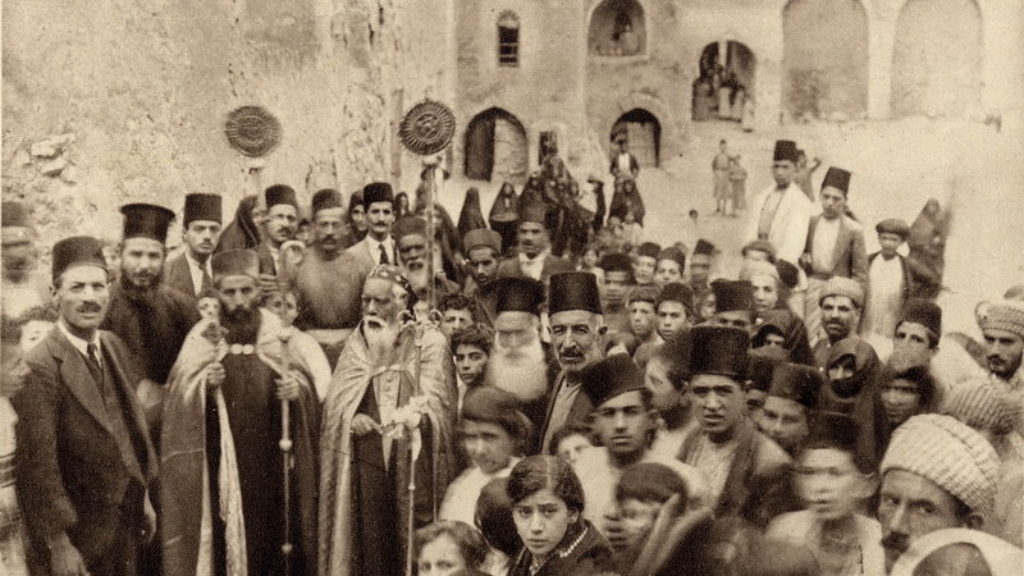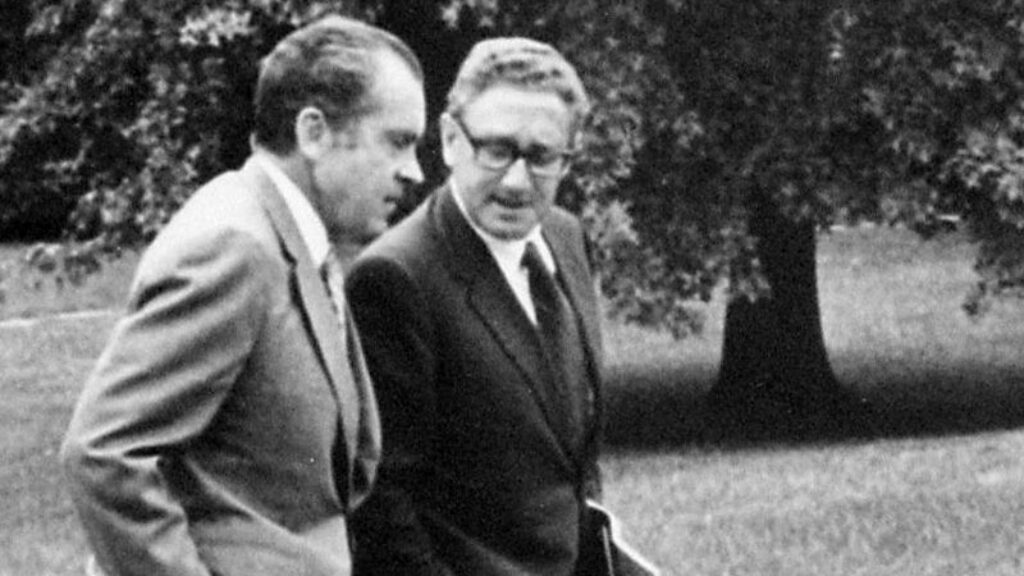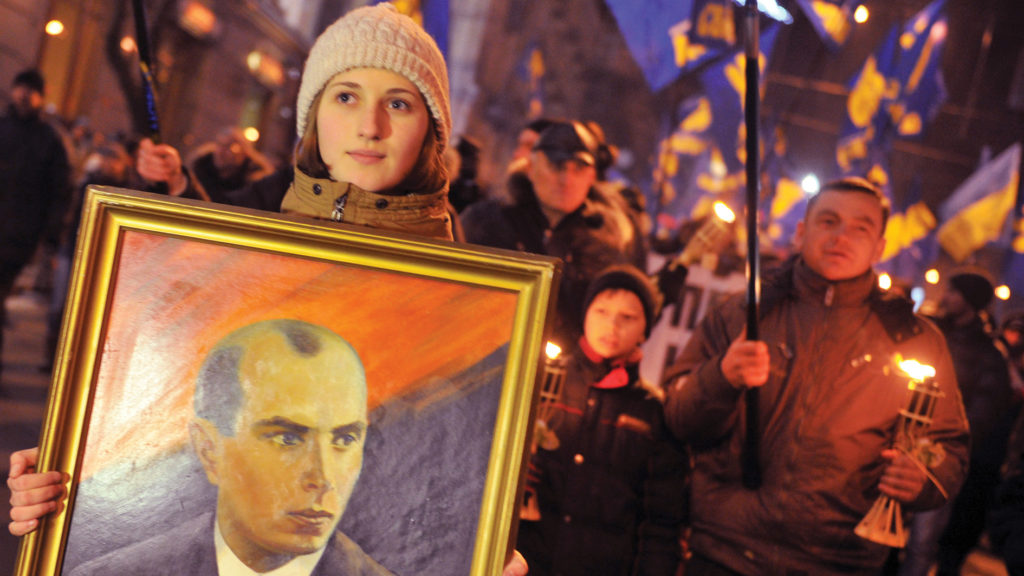High Fives
When I was first out of grad school and looking for jobs, there was one, a plum, for which a member of the hiring committee, a Falstaff-sized professor of Christian thought, was asking applicants—I almost wrote supplicants—for their two favorite books. “Early Auden and late Wittgenstein,” I snapped back, happy with the speed and symmetry of my answer, but also worried as I watched his large puzzled face and realized that, obviously, he had been looking for an answer that was, well, more Jewish.
Standing there in my blue interview suit before this bluff tenured eminence I felt like the dog in a joke my father used to tell: A man walks into a bar. “Will you give me drinks on the house if my dog can talk,” he asks. “Sure,” says the bartender. “Rover, what’s that?” asks the man pointing upward. “Roof, Roof,” says the dog. The bartender folds his arms. “Wait,” says the man. “Rover, who’s the greatest baseball player of all time?” “Ruth, Ruth,” says the dog. Out on the sidewalk, the dog turns to the man, “Maybe I shoulda said DiMaggio?”

Still, I do like a good book list. Lately, we’ve all—well all five of us—been walking around the JRB offices smiling. It’s been five years since we put out our first issue, and we feel, if not venerable, at least established—and as proud as kindergartners, so we’ve been playing a game: What five books are you reading right now?
I have a stack of Saul Bellow books two-and-a-half feet high (see pages 43–46), but forced to choose, I’ll go with The Adventures of Augie March. Asked what it was about, Bellow replied “about 200 pages too long,” which is true, but the first 100 pages may be the best American prose of the 20th century. Less fun: I’ve been reading Jeremy Bernstein’s Nuclear Iran, which came out last year (we sent it out for review, but, the old preacher notwithstanding, sometimes one casts one’s books upon the waters and no review floats back). Bernstein, a physicist who worked at Los Alamos as a young man, is always an engaging writer and no kind of alarmist, which makes his book all the more alarming.
In 1625, Joseph Solomon Delmedigo of Crete wrote to a student that the four leading commentators of Maimonides’ The Guide of the Perplexed were like the four sons of the Passover haggadah. The “wicked” one, who further radicalized Maimonides’ most daring philosophical doctrines, was Moses of Narbonne. I’ve been rereading his 14th-century commentary, but to be fair that should count for two books (Guide and commentary). Which leaves me with one more: In my seminar this semester, we’re reading I and Thou, which was probably the kind of thing that interviewer was expecting. For all Buber’s prophetic-poetic posturing and his determination to bypass tradition for the Eternal You, it is a deep and moving book. I’m tempted to say that it’s my favorite work of Protestant thought.
—Abraham Socher
On top of my pile of five is Tuvia Friling’s A Jewish Kapo in Auschwitz: History, Memory, and the Politics of Survival, the bleak but irresistible story of the son of Yitzhak Gruenbaum, one of the interwar leaders of Polish Jewry who later became Israel’s first minister of the interior. I’m not sure yet what I think of the book underneath it, Hillel Cohen’s 1929: Year Zero of the Jewish-Arab Conflict, but it’s full of fascinating things. One of them is an account by General Israel Tal (a great commander who developed the Merkava tank) of how he narrowly escaped death in 1929, as a five-year-old, at the hands of an Arab mob in Safed.
Poking through his exasperating At Home in Exile: Why Diaspora Is Good for the Jews (in a nutshell: because the ones in Israel might some day have the sense to listen to those who aren’t), I found Professor Alan Wolfe of Boston College quoting an obscure researcher at Harvard in the 1970s and then introducing Alan Dershowitz offhandedly as a “a law professor at the same university.” This isn’t exactly chutzpah, but it’s certainly not meant to be flattering. I’ve also been taking a peek every once in a while at Jonathan Soffer’s Ed Koch and the Rebuilding of New York City. It’s not really my kind of book, but the author’s father was for a long time my father’s lawyer, and I’m curious to hear, now and then, the voice of a landsman I last encountered decades ago, when he was in high school, precociously and anachronistically absorbed in the writings of Ber Borokhov.
At the base of my pile (because it’s the fattest) is Ron Chernow’s decade-old biography of Alexander Hamilton. I picked up a copy of it a long time ago, but didn’t open it until I heard that it was the inspiration for Lin-Manuel Miranda’s new off Broadway musical Hamilton. I don’t know why, but that made me want to read the book.
—Allan Arkush
Working at the JRB means a reading list that never gets any shorter, with new books (reviewed and not) jumping on faster than you can cross titles off. In heavy rotation is Joann Sfar’s charming Little Vampire collection of comic books, which is as interesting to me as it is to my children. They have prompted deep dinner table discussions about maintaining faith after tragedy and the relative scariness of mummies versus vampires. Also raising the issues of faith in the face of tragedy is The Bloomsbury Companion to Holocaust Literature, which, for me at least, poses as many questions as it answers and has caused the stack of books on my bedside table to overflow the three shelves and spread to the floor under the bed.
A book I couldn’t put down—either the first or the second time I read it—is Howard Jacobson’s J: A Novel. Despite Ruth R. Wisse’s prodigious power with words (see pages 14–16), it is, I think, impossible to capture the nuanced perfection of what Jacobson has created, even though his imagined world is perfectly horrible.
Back in the present, I am reading dueling Begin biographies by Avi Shilon and Daniel Gordis. And for Shabbat reading—and a respite—I’m regularly reaching for an annotated Book of Proverbs. Looking forward to many more years of making our ears attentive to wisdom and our minds open to discernment (see Prov. 2:2).
—Amy Newman Smith
Comments
You must log in to comment Log In
Suggested Reading

Where Abraham Walked
Preserved for centuries by Syrian Christians, spoken-Aramaic is now breathing its last.

Tragedy and Power
Barry Gewen’s new book argues that Henry Kissinger's "hardheaded Realism” was born of his family’s tragic experience in Nazi Germany.
Two Poems
Two untitled poems by Avraham Halfi, translated by Leon Wieseltier.

Poland Is Not Ukraine: A Response to Konstanty Gebert’s “The Ukrainian Question”
Dovid Katz explores what it means to be a “good guy” and a “bad guy” in his response to Konstanty Gebert’s article on Ukraine and its Jews.
Jacob Arnon
"At Home in Exile: Why Diaspora Is Good for the Jews"
The oxymoronic book title tells us all we need to know about the irrationality of "diasporist thinkers." The fact that Jews were and are hated even though they massively contribute to "world" culture (and were actually resented because of it) doesn't mean that the diaspora "is good for the Jews."
At best such a view argues that diaspora Jewry was and is good for some sort of abstract "world culture" which many non Jews hate.
Besides while a Freud or a Marx (whose views are not relevant anymore) could only have come from diaspora Jewry, an Einstein could have appeared in the Jewish homeland as well as in the diaspora.
We and the world need both a Jewish State as well as Jews who live in the diaspora.
Ironically, the dreamy sociologist Alan Wolfe will in the future be remembered by people who dislike both the Jewish State as well as the Jewish diaspora for his hidebound defense of the indefensible: a shrinking Jewish diaspora.